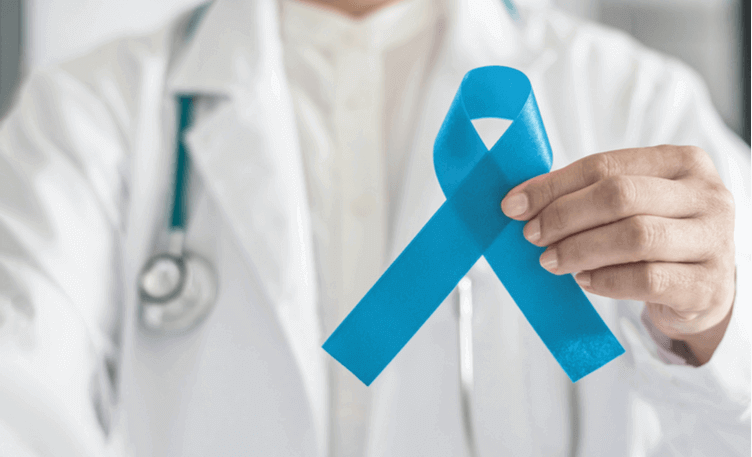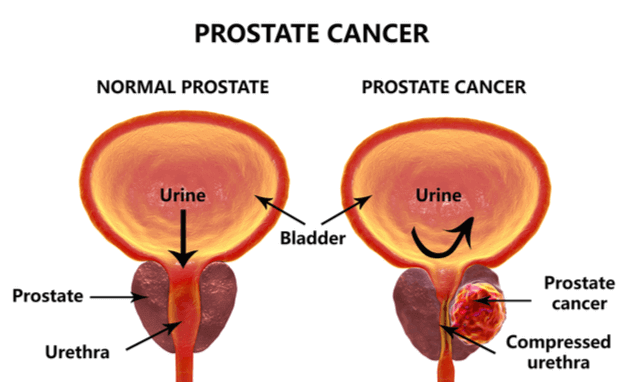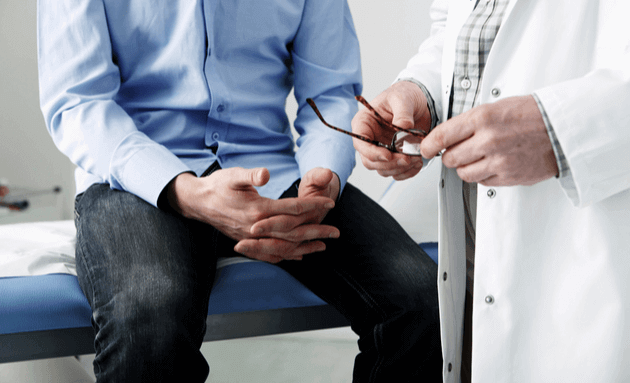Prostate Cancer: Learn About The Symptoms, Prevention and Treatment

You will be surprised to know that prostate cancer is one of top 10 cancers in India and its occurrence is fast growing. Indian Council of Medical Research (ICMR) is India's main body for biomedical research and they have found that it is the second leading cancer found in males in India's large cities like Pune, Kolkata, Delhi and more.
In 2018, prostate cancer formed a little over 2% of all cancer cases in India, registering 25,696 new cases. Moreover, it is no longer a disease that strikes men after 60 years - younger men are slowly being reported as patients.
It is time to wake up and build awareness about Prostate cancer. Early intervention is of paramount importance and to be able to understand the signs, we need to build our understanding.
What is Prostate Cancer?

Prostate cancer is a form of cancer that affects only men. It develops when abnormal cells in the prostate multiply and accumulate to form a tumour. The prostate is a walnut-shaped gland that is located between a man’s bladder and penis. It is responsible for preserving the health of the male sperm by nourishing and protecting it.
Prostate cancer can be categorised into two types - an aggressive and non-aggressive form. With the non-aggressive form, the tumour either doesn't grow or grows very slowly. Patients will thus require little to no treatment. In the aggressive form, the tumour can grow quickly and invade organs in tissue around the prostate and spread to organs far and inside including bones.
What can cause it?
Age is a key risk factor for prostate cancer. In India, an individual’s risk of developing the ailment rises steeply once they enter their 50s. The cancer may appear even earlier if there is family history.
While age and family history of the disease are non-modifiable risk factors, there do exist other modifiable risk factors that can contribute to risk of developing prostate cancer. Top of these reasons are smoking, obesity, lack of exercise and poor diet.
A family history of the BRCA1 or BRCA2 genes (that increase a woman’s risk of breast cancer) may also contribute to higher prostate cancer risk.
What are the Symptoms to look out for?
If detected early (while still confined to the prostate gland), prostate cancer can be cured. Unfortunately, prostate cancer does not show significant signs until it has advanced.
Watch for the following symptoms in order to detect the ailment as early as possible.
1. Problems with Urination: The prostate gland is located just beneath the urinary bladder and surrounds the urethra. A tumour in the prostate gland can thus interfere with urination by pressing against the bladder and the urethra.
A problem with urination is often the most prominent sign of prostate cancer. This could present itself as urgent, uncontrollable need to urinate or frequent nighttime urination. There could be a difference during urination - either in the form of pain, a slower, weaker urine stream or difficulty in starting / stopping urination.
2. Pain and Numbness: When prostate cancer turns aggressive, it can spread to other parts of the body, especially the bones. This can result in pain in the pelvic region, back, and chest. In certain cases, it can spread to the spinal cord and lead to loss of feeling in your legs and bladder.
3. Blood in Urine or Semen and Sexual Problems: Blood in your urine or semen can be a sign of prostate cancer. It is important to see a doctor immediately if you notice this symptom. Prostate cancer can also cause impotence or erectile dysfunction in males.
Keep in mind that the symptoms mentioned above are more commonly caused by other ailments that affect the prostate, such as benign prostatic hyperplasia (BPH) and prostatitis. Having these symptoms doesn’t necessarily mean you have cancer. Please consult your doctor to understand what is causing them.
How can I Reduce the Risk of Prostate Cancer?

Eat a healthy diet that consists of tomatoes, cruciferous vegetables (cauliflower, broccoli, and cabbage), green leafy vegetables, foods rich in omega-3 fatty acids (fatty fish and nuts), and soya. Maintain a healthy weight and exercise regularly. Give up smoking immediately and moderate your alcohol intake.
As with every other ailment, it is important to be aware of your symptoms and get diagnosed on time. Doctors recommend that you get screened for prostate cancer regularly once you hit your fifties. If caught on time, prostate cancer can be treated effectively.


